Normal Punctuation Worksheets for Ages 4-8
12 filtered results
Difficulty Level
Grade
Age
-
From - To
Subject
Activity
Standards
Favorites
With answer key
Interactive
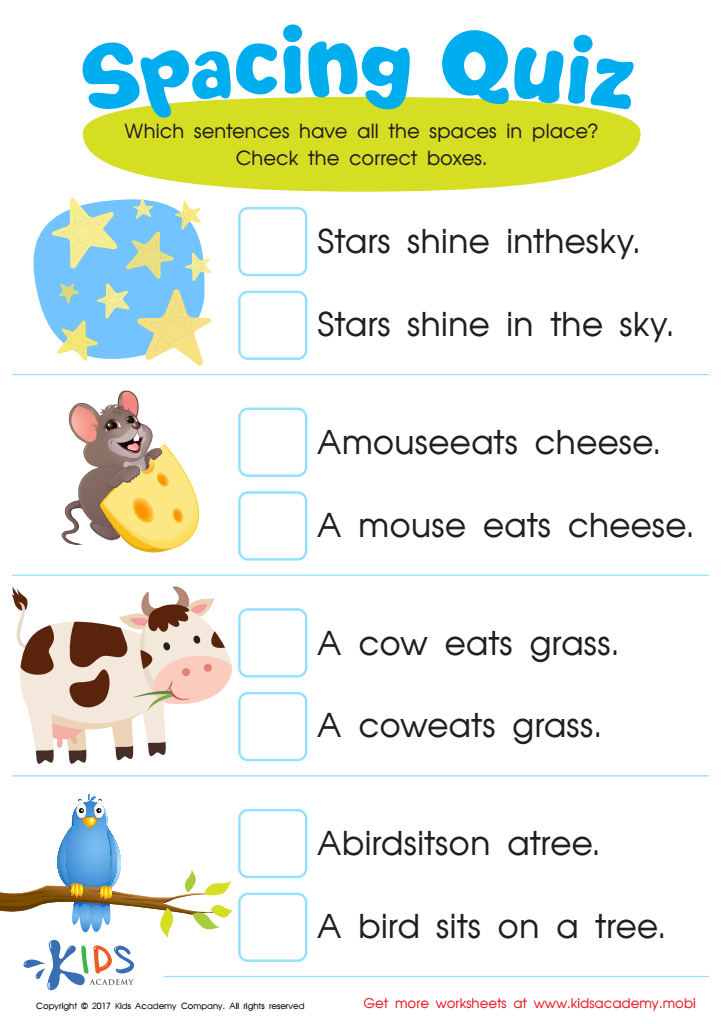

Spacing Quiz Worksheet
Space between words is key for writing legibly. It can be hard for beginners to get it right - help them practice with a fun nature-themed worksheet! Just have them read each sentence slowly, listening for where spaces should be and looking to see if they've been added in the right places.
Spacing Quiz Worksheet
Worksheet
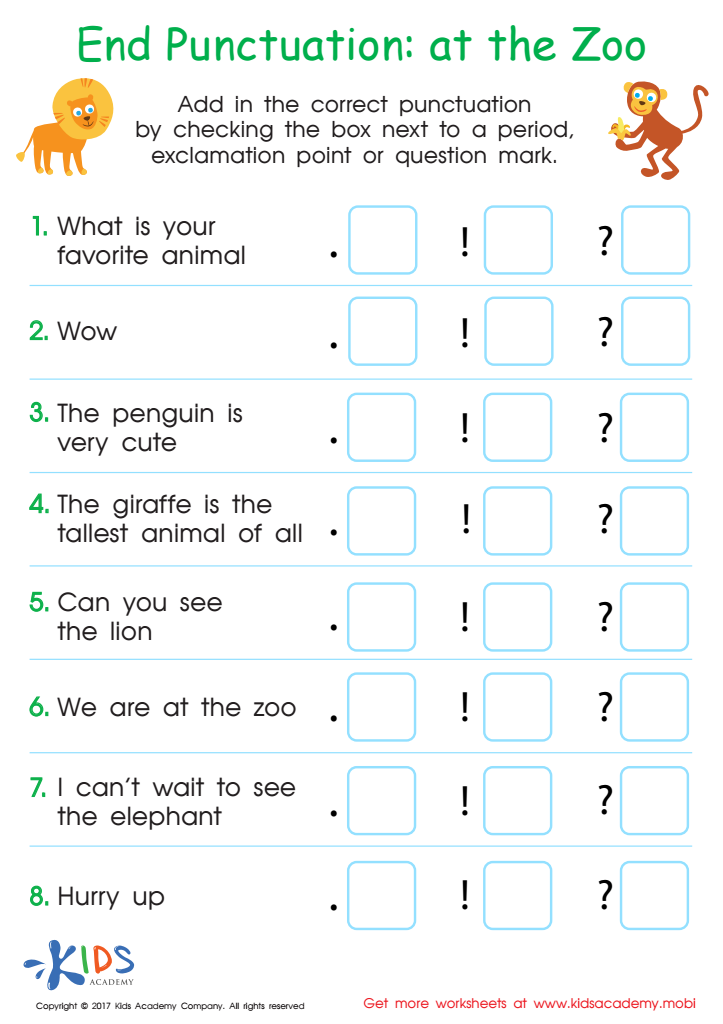

End Punctuation: At the Zoo Worksheet
Let your kid hone their sentence and punctuation skills with this cute At the Zoo worksheet. Read it out loud to provide guidance if needed, and help your child find the right punctuation mark for each sentence.
End Punctuation: At the Zoo Worksheet
Worksheet
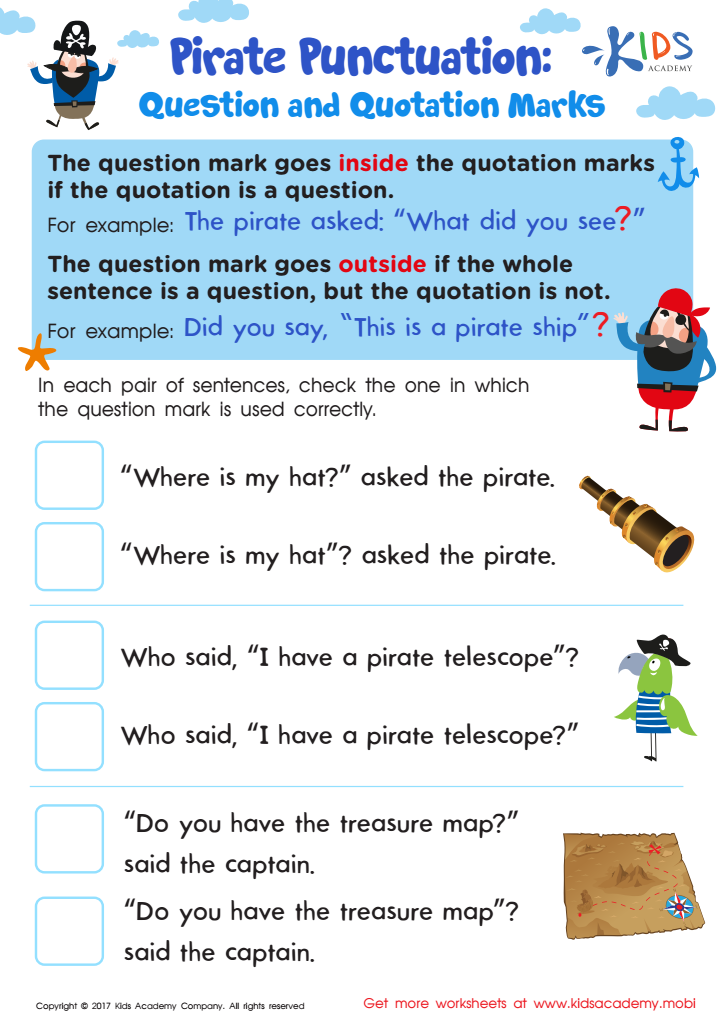

Question and Quotation Marks Worksheet
Adults often struggle to remember the rules for placement of question marks with quotation marks. This practice worksheet can help build the writing conventions needed.
Question and Quotation Marks Worksheet
Worksheet
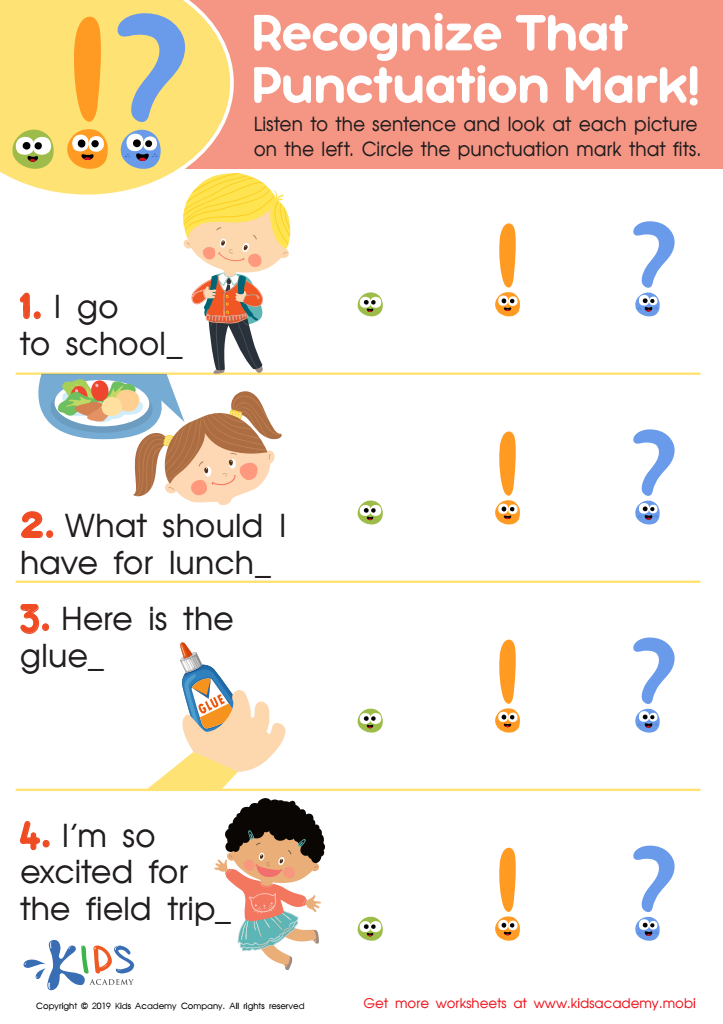

Recognize Punctuation Marks Worksheet
Before beginning the worksheet, ask your students to name punctuation marks they know and what they mean. Common punctuation marks are full stop, question mark and exclamation mark. Point out each one in the picture and read the sentences, helping them circle the right punctuation.
Recognize Punctuation Marks Worksheet
Worksheet
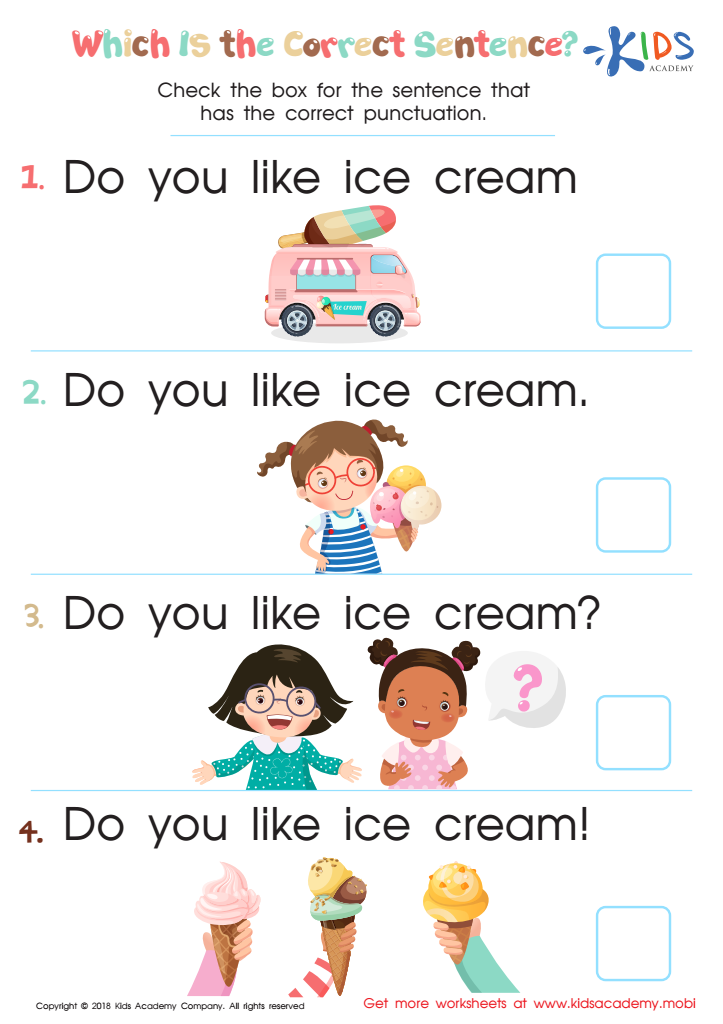

Which is the Correct Sentence? Worksheet
Punctuation is crucial in sentence formation. If your kid still doesn't grasp it, bigger hurdles await when writing sentences. Get them to read simple sentences, then ask if they know the right punctuation. Assist them in selecting the sentence that has the accurate punctuation.
Which is the Correct Sentence? Worksheet
Worksheet
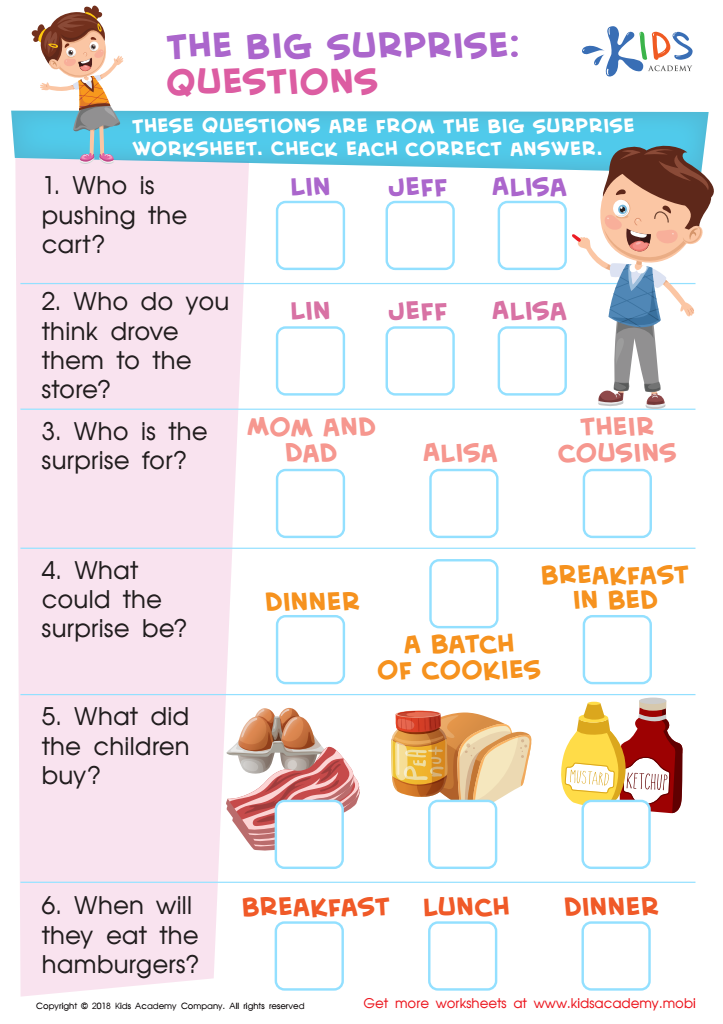

The Big Surprise: Questions Worksheet
Have your child read or listen to The Big Surprise. Ask them the questions in the printable, help check the answers and discuss the story. Keep it to 80 words.
Have your child read or listen to The Big Surprise, then ask them the questions in the printable. Discuss the story and help them check the answers.
The Big Surprise: Questions Worksheet
Worksheet
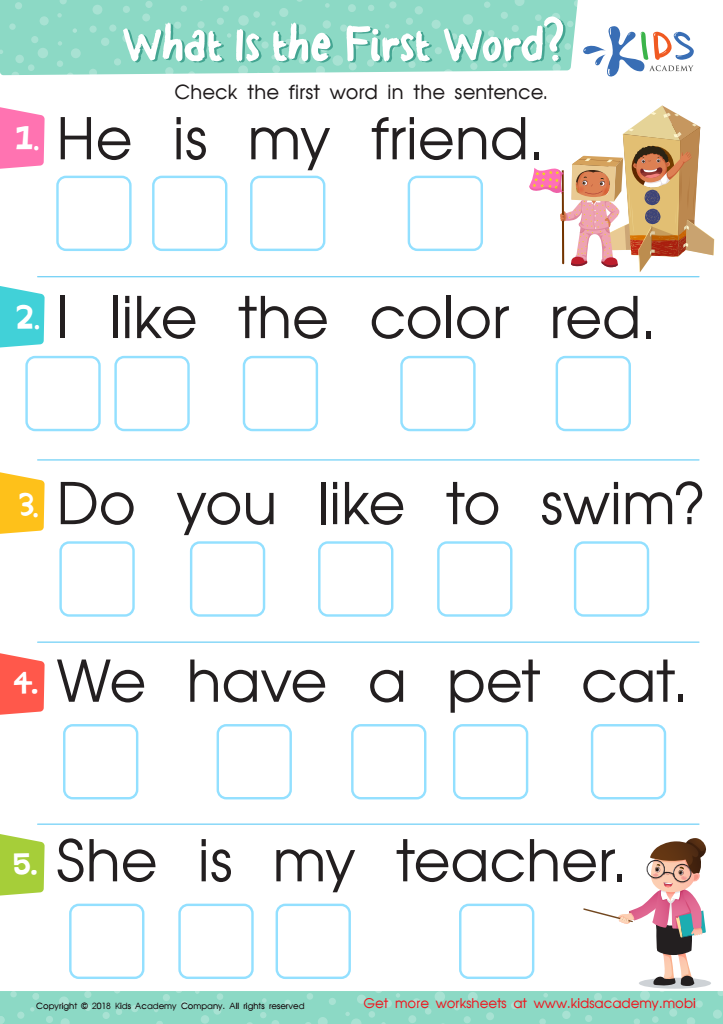

What is the First Word? Worksheet
Help your students test their sentence-reading skills with this printout! After teaching the alphabet, have them identify and write the first word in each sentence. With this exercise, they'll gain reading proficiency and be better prepared to write their own sentences.
What is the First Word? Worksheet
Worksheet
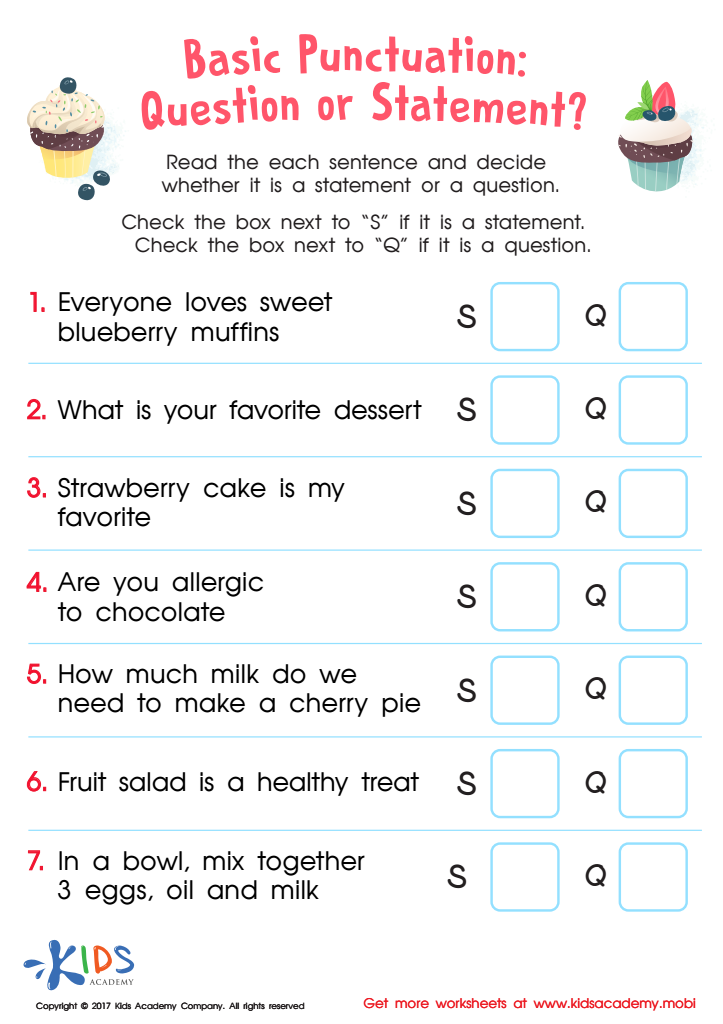

Basic Punctuation: Question or Statement Printable
Once kids can read and write, it's time to learn punctuation. With this fun worksheet, your child can practice distinguishing questions and statements using candy-themed examples. Question or Statement?
Basic Punctuation: Question or Statement Printable
Worksheet
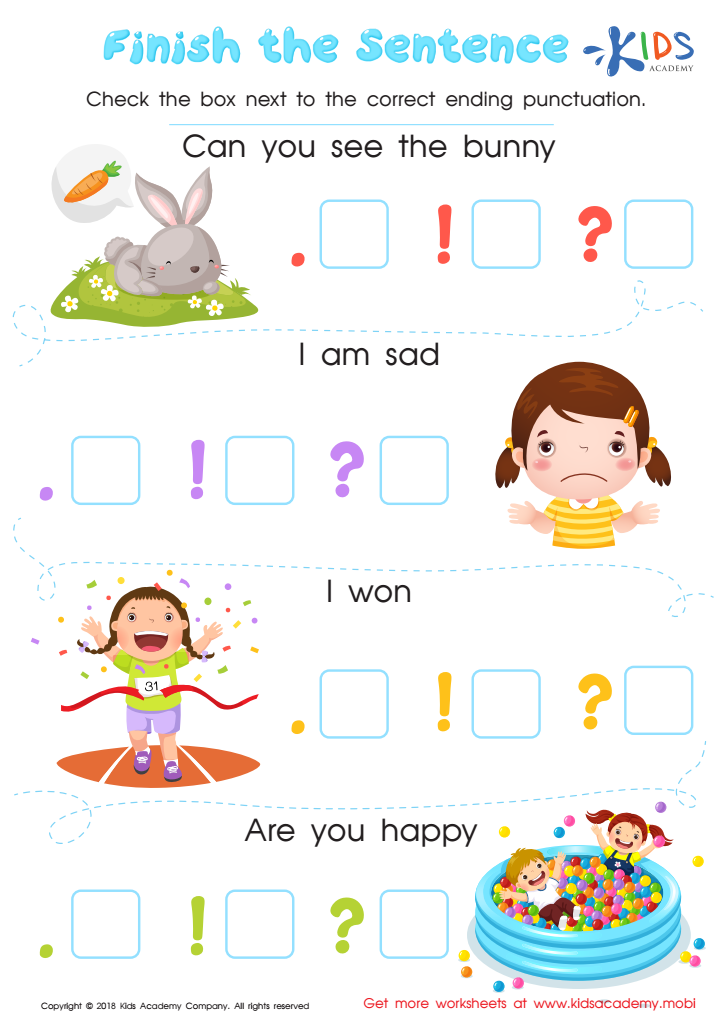

Finish the Sentence Worksheet
If your students have difficulty with punctuation, have them read sentences aloud and check the box next to the correct ending punctuation with this simple worksheet. Punctuation signals the tone and meaning of sentences. It helps students understand what is being communicated.
Finish the Sentence Worksheet
Worksheet
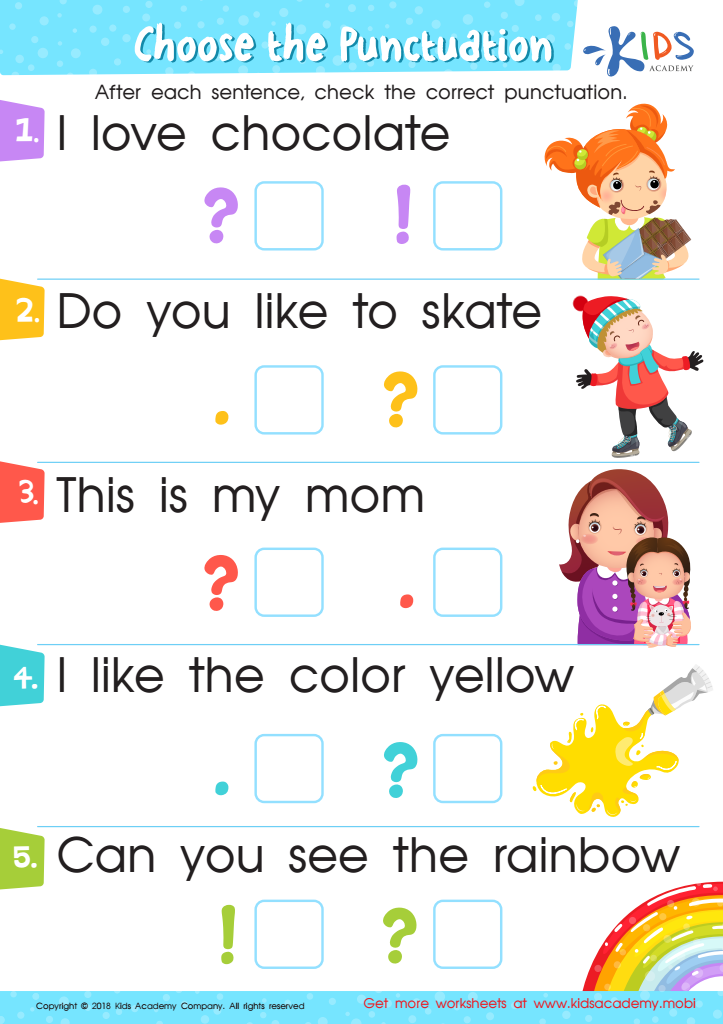

Choose the Punctuation: Assessment Worksheet
Does your child know punctuations? Found at the end of words, they signify the tone of the sentence. Ask them which punctuations they use daily. With your little one, look at a worksheet. Read each sentence aloud and ask them to identify the two punctuations given. Instruct them to choose the correct one. 80 words.
Choose the Punctuation: Assessment Worksheet
Worksheet
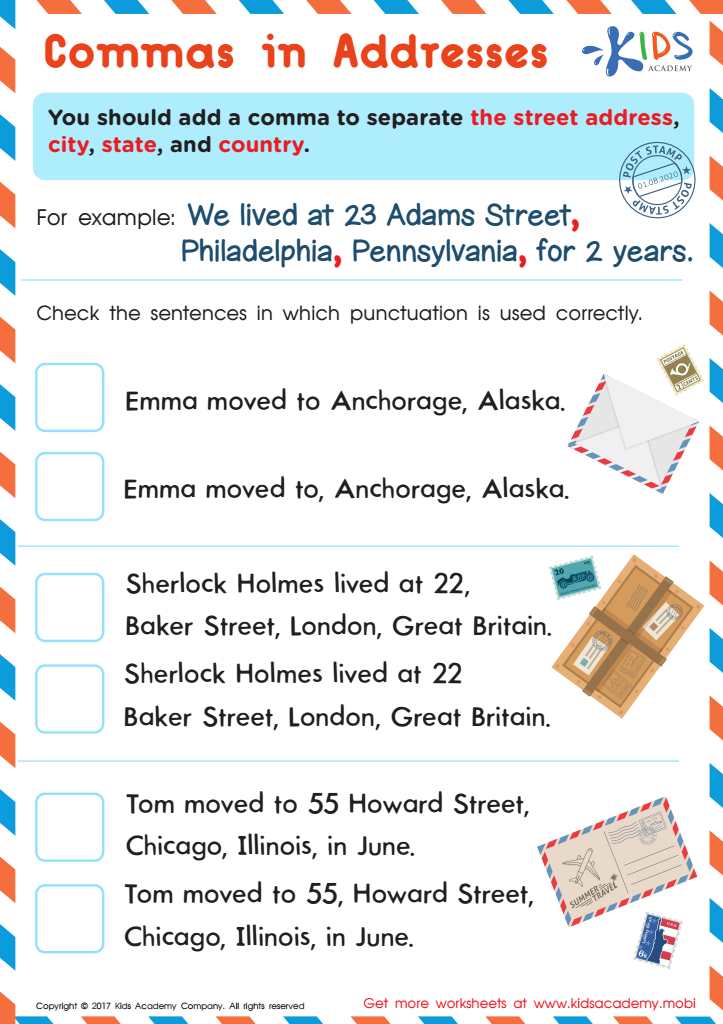

Commas in Addresses Worksheet
Learning comma rules can be tough for kids. Help make it easier with free worksheets, like this fun letter-themed exercise. It'll teach them the rules in isolation and keep them engaged.
Commas in Addresses Worksheet
Worksheet
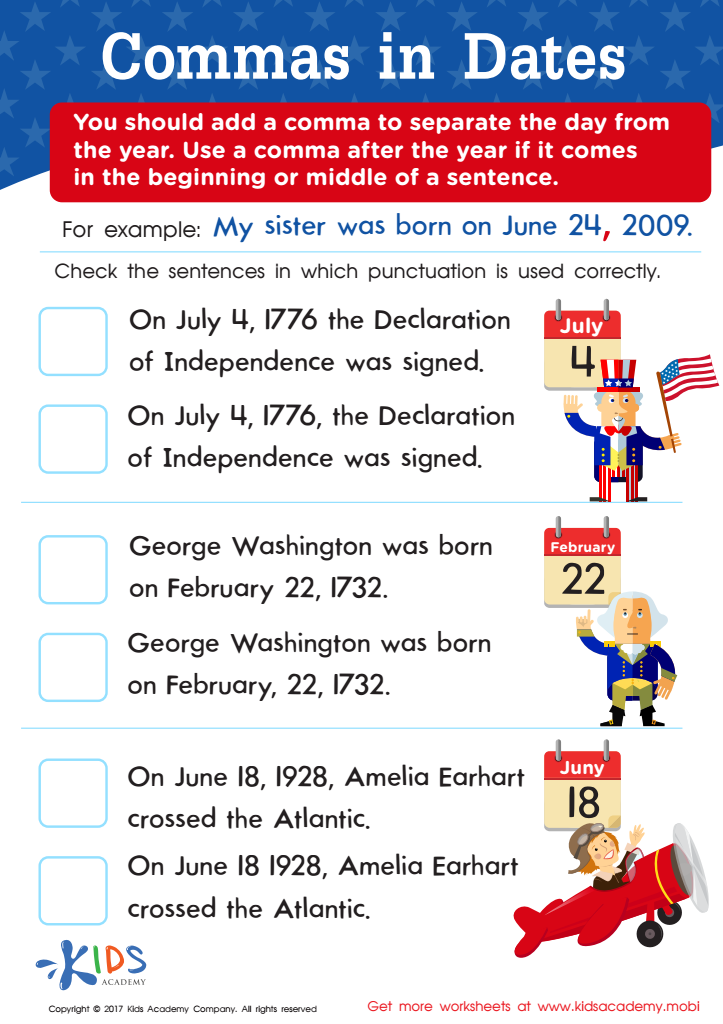

Commas in Dates Worksheet
With included PDFs, kids learn to use commas correctly in dates, discovering the most important days in U.S. history along the way.
Commas in Dates Worksheet
Worksheet

 Assign to the classroom
Assign to the classroom











